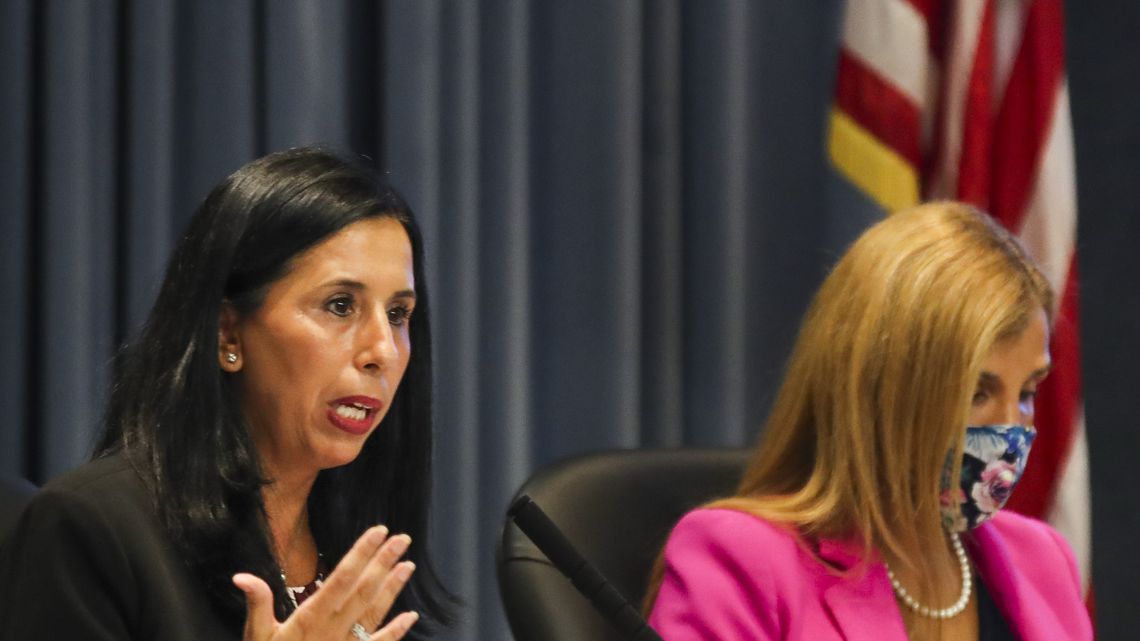
Charter school group, spurned once, is back before Hillsborough board
Tampa Bay Times | By Marlene Sokol | September 20, 2021
Mater Academy, with 48 schools in Florida and Nevada, still wants to add two in Hillsborough.
A South Florida charter school group that was rejected by the Hillsborough County School Board in June will get a second shot at acceptance Tuesday.
Mater Academy Inc. wants to launch an elementary school and a middle school at unspecified locations, serving 568 students when they open in 2022, with enrollment expanding to 1,362 students at the end of five years. Like other schools in the growing charter sector, they would receive state funding but operate outside the district’s control.
State law allows charter schools to gain approval without deciding on a location if the operators are considered “high-performing” based on their prior record in the state. Mater has that designation.
New this year, charter schools are also allowed to seek approval throughout the year instead of only during designated application cycles.
Mater applied previously to open the two schools in east Hillsborough, without being specific about the sites. While district staff recommended approval, the School Board on June 15 rejected both projects, along with four other charter school renewals.
The rejection of the four existing schools, which could have displaced more than 2,000 students, put the district on a collision course with the state Department of Education, which threatened financial penalties if the board did not reverse course. The board relented, and the four schools have remained open.
In the case of the Mater schools, board member Nadia Combs questioned the organization’s integrity, based on published reports about Mater’s business relationships with Academica, the for-profit management company that works for the Mater schools. The reports described a government audit that covered events between 2011 and 2013.
Board chair Lynn Gray said she did not think the charter schools were necessary in East Hillsborough, where district-run schools, on average, earn B grades from the state. The board rejected the elementary school by a 4-3 vote and the middle school 5-2.
The votes occurred as board members remained concerned about the growth in charter school enrollment, which weakens traditional public schools, charter school opponents say, and takes money out of the district budget. That trend continues this year, according to enrollment numbers released Tuesday.
District-run schools lost more than 6,000 students between the 20th day of school in 2020 and the 20th day of the current year. Charter schools, meanwhile, picked up 1,322 students not including those attending two new IDEA charter schools, which estimated previously that they opened with 1,000. In Hillsborough County, more than 15 percent of public school students are now served by charters.
The Mater group has close to 50 schools in Florida and Nevada, according to its website. In addition to its “high-performing” designation, the organization has been selected as a state “school of hope” provider, which means it can seek fast-track approval if it operates in a community served by an under-performing district school. Mater’s current Hillsborough applications, however, did not use the school of hope approval process.
The 4 p.m. meeting where the Mater proposal will be put to a vote will follow a 9:30 a.m. workshop session on pending board policies. Two of the policies will explore social issues on opposite sides of the political spectrum.

Board member Melissa Snively, who represents largely conservative East Hillsborough, wants to fine-tune the district’s reproductive health education policy, deleting the phrase “and condoms” from a section that says classes will teach “the health benefits and side-effects of contraception.”
Snively also wants a paper and an electronic parental opt-out form available for all schools on the district website. Parents already are allowed to opt their children out of sex education, but under the current system, they must take the initiative.

Board member Jessica Vaughn, in a separate matter, wants to expand on the district’s diversity and racial equity policies to include staff training in implicit bias.





